The Scientist
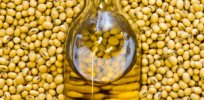
Calyxt gene-edited soybean oil debuts in Midwestern US restaurants
At the end of [February 2019], Calyxt, an agriculture-focused company based in Minneapolis-St. Paul, Minnesota, announced its first sale of ...

Can the flu cause Parkinson’s and other brain disorders?
One of the earliest links between influenza and neural dysfunction was a correlation between the 1918 Spanish flu, caused by ...
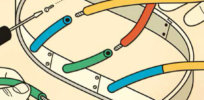
Viewpoint: Creation of synthetic DNA demands ethical boundaries for its use
A study published [February 21] expands the redesign of the 4-billion-year-old genetic code from a four-nucleotide base-pair alphabet to an eight-base-pair ...

Popular autism ‘signaling imbalance theory’ challenged, suggesting new drugs ‘may have little value’
An analysis of four mouse models negates certain assumptions underlying the “signaling imbalance theory,” a popular hypothesis about autism’s origins ...

Keen sense of smell? You’re probably good at not getting lost, study suggests
Watch a bacterium chase down the source of an enticing molecular trail using chemo-taxis, and it’s clear that its sensory ...
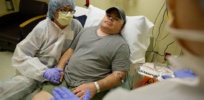
First gene-editing experiments on adults suffering from rare metabolic disorders offer promising early results
In late 2017, scientists first began attempting to edit the genes of adults to treat rare genetic disorders. Preliminary results ...

Plant scientists: Anti-GMO activism has warped the public’s understanding of biotechnology
Public perception of genetically engineered (GE) crops is being manipulated by organizations that purport to represent the interests of consumers ...
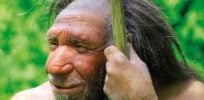
Tracking Neanderthal DNA in modern humans: There’s been little change in 45,000 years
Neanderthals, modern humans’ closest evolutionary relatives, have been extinct for thousands of years. But due to interbreeding between the two ...

Infographic: How do urban environments drive genetic change?
Air pollution may favor the adaptation of organisms to become more stress-resistant than their rural counterparts. There is some evidence ...
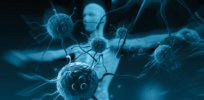
Immunotherapy more effective in patients with more cancer mutations, study shows
The number of mutations in a tumor’s genome may predict how well a patient will benefit from treatment with immune ...

Men are less tolerant than women when it comes to repeated pain, study shows
A painful experience is not one you are likely to forget—you don’t need to have a trunk slammed onto your ...
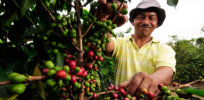
60 percent of wild coffee species at risk of ‘extinction’
More than half of the world’s 124 wild coffee plant species meet the criteria for inclusion on the International Union ...
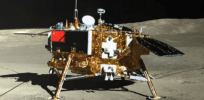
China is growing crops on the moon in preparation for its proposed lunar base
There’s cotton growing on the far side of the moon—the first time plants have sprouted there. On January 3, a ...

Examining the genetic roots of anorexia and other eating disorders
Characterized by extreme caloric restriction resulting in weight loss, an intense fear of gaining weight, and a distorted body image, anorexia ...

Smoking pot while pregnant increases health risks, including depression and drug abuse, for offspring
Various large-scale longitudinal research projects in both North America and Europe, ranging from several hundred to thousands of subjects, on ...

Urbanization is a ‘massive unplanned experiment’: How cities affect evolution
[C]ities are having profound effects on their animal and plant residents. Globally, about 0.5 percent of Earth’s land area is ...

Viewpoint: Documentary Genesis 2.0 delivers ‘warning’ about synthetic biology
“How did you manage to set free that terrible devil?” asks a Yakut poem, solemnly intoned near the beginning, and ...

Unapproved stem cell treatments draw FDA investigation following bacterial infections
This year [2018], 12 people have been hospitalized with bacterial infections after being treated with stem cell products derived from ...
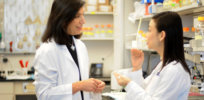
Meet Huda Zoghbi, pediatric neurologist working on rare diseases
Huda Zoghbi has uncovered the molecular mechanisms of normal neurodevelopment and neurodegeneration by probing the complexities of rare neurological diseases ...
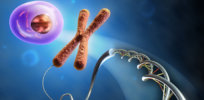
New techniques could transform epigenetics research, ameliorating diseases
Epigenetics, the study of mechanisms by which genes are turned on or off without altering their genetic code or DNA ...
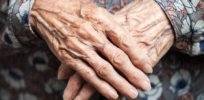
Casting doubt on whether our DNA can be tweaked to increase human lifespan
Estimates predict that somewhere between 15 percent and 30 percent of the variability in human lifespan is due to genetics ...

Exercise as a treatment for Parkinson’s and Alzheimer’s?
Researchers have long recognized that exercise sharpens certain cognitive skills. Indeed, [researcher Hiroshi] Maejima and his colleagues have found that ...
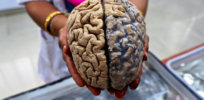
Chasing the biology underlying human intelligence
[H]uman intelligence [has increased] over time. Proposed explanations for the phenomenon, now known as the Flynn effect, include increasing education, ...

Understanding what happens when routine touching becomes agony
It shouldn’t hurt to put on socks, wash hands, or walk about, but for some people with damaged nerves, certain ...

Increase in autism linked to rising maternal obesity and diabetes
More and more children around the world are being born to obese mothers than ever before. In the United States, ...

3 reasons ALS research struggles to find treatment answers
[T]he desire to give [ALS] patients hope has often outstripped good scientific sense. “Many drugs that have gone into ALS ...
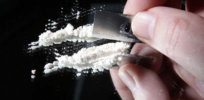
Can a skin patch thwart cocaine overdoses?
There are nicotine patches to help quit smoking, and then there’s this: patches of actual skin, genetically engineered to produce ...

Could a pill replicate the Alzheimer’s defense gained through exercise?
Mice that model a severe form of Alzheimer’s disease tend to exhibit improved memory after exercise-induced neuron production, according to ...

